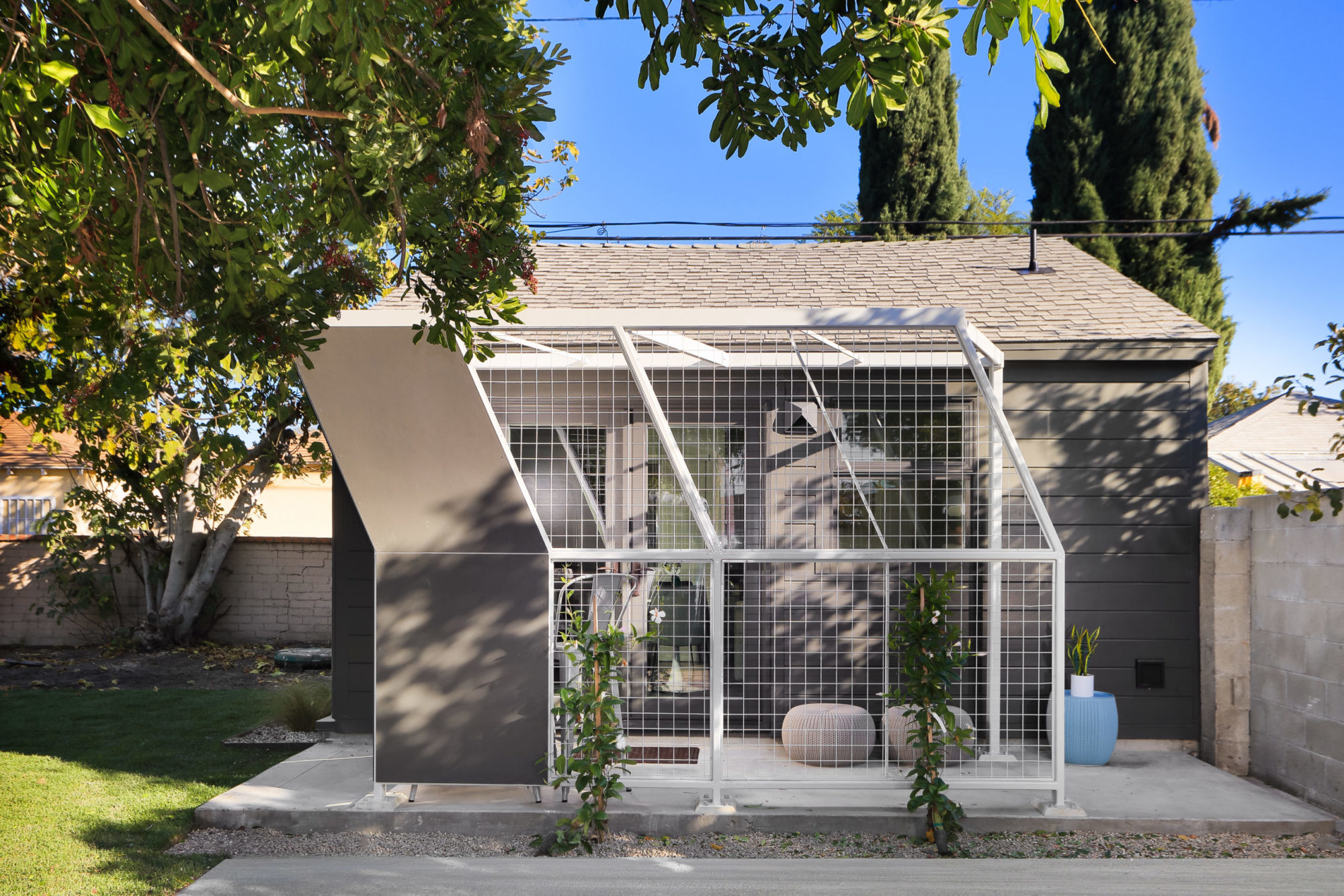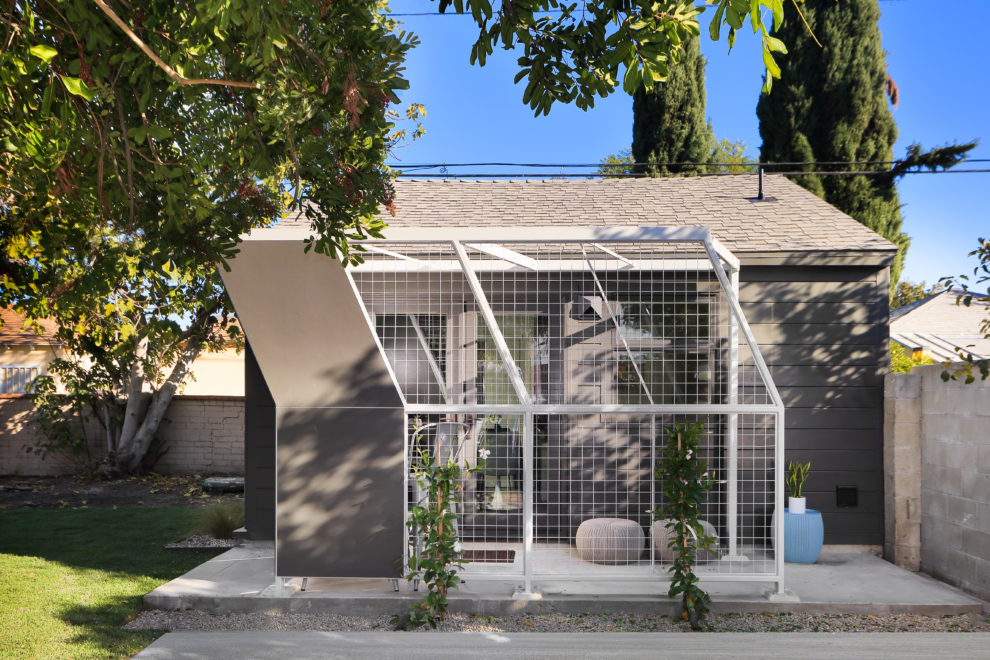Storied investor Steven Dietz‘s earliest investments were in two businesses that are household names today: Costco and Starbucks.
As one of three founders of Upfront Ventures, he subsequently went on to back PetSmart, Ulta Beauty and Office Depot (among others) during his time at the Santa Monica, California-based venture firm.
Subscribe to the Crunchbase Daily
In July 2016, he sold his stake in Upfront to his two partners after the firm had grown to become one of the largest and most successful venture funds in Southern California. His individual portfolio had five exits valued over $1 billion.
But now, Dietz is on a different mission. The former VC is founder of a 2-year-old, Culver City, California-based startup called United Dwelling, which aims to tackle the affordable housing problem using data, creativity, and underutilized garages and backyards.
This morning, United Dwelling announced it raised a $10 million Series B led by Alpha Edison with participation from Lightspeed Venture Partners. The financing brings the company’s venture raised to $12.2 million over its lifetime, according to Crunchbase data. United Dwelling had previously raised $2 million in a Series A round (funded by Dietz) at a pre-money valuation of $18 million. It declined to disclose the valuation at which the Series B was raised.
‘Immense’ opportunity
I hopped on a call with Dietz this week to hear more details about the company, in addition to his plans for the new capital.
He told me United Dwelling plans to eventually build thousands of Accessory Dwelling Units, which are basically 369-square-foot studio homes. The company said its units benefit homeowners who are looking for ways to supplement their income as well as tenants looking for low-cost housing options.
The company’s approach is kind of genius really.
United Dwelling uses data to identify potential lots that would be suitable for its units. It targets mostly low-and middle-income neighborhoods, with some exceptions for workforce housing. The company at first was going to just remodel garages but discovered quickly it’s much easier to tear down old ones and start fresh. So that’s what it does. It replaces those garages with small, affordable and zero net carbon homes in low-density neighborhoods with no out-of-pocket costs to property owners.
It then sets a rental price for the newly built unit and manages the property on the homeowner’s behalf, keeping a share of the rental income. Upon completion of construction, United Dwelling gives the homeowner the option to buy the unit back from the company for just under $88,000. To keep the costs of construction down, United Dwelling aims to build at least five units within a two-mile radius in the same time frame. Its initial focus is on the Los Angeles region with plans to eventually expand to the Bay Area and other locations once its solidifies its process, according to Dietz.
Specifically, the company plans to build over 150 of its detached studio homes in Southern California in 2020 and over 1,500 in 2021 (assuming construction can continue moving forward as an essential function per Los Angeles COVID-19 policy).
“Affordable housing is one of the most daunting challenges facing California and other parts of the county that is both entirely man-made and completely solvable,” Dietz said. “Here, we can do something that’s incredibly relevant. The opportunity is truly immense. Affordable housing is pretty easy. All you need is inexpensive land and construction, and capital.”
Building ‘something beautiful’
Ramping up took some time because Dietz not only had to seek permits, he also had to pursue amendments to laws for his concept to work.
“The permits were easy, but the underlying rules had to be changed so that our units could be built at all,” he told Crunchbase News.
United Dwelling’s proposal to homeowners is for the company to lease the space for 15 years, build out the studio home and then manage the property on their behalf. As mentioned above, the homeowner has the option to buy it out upon completion.
“We make this all turnkey for them,” Dietz said. “So many people just used their garages to store junk they just didn’t know how to get rid of. We optimize the value proposition for the homeowner and tenant, and inexpensively build something beautiful.”
 Rents will be about 20 percent less than a one bedroom in the same community. Depending on the neighborhood, rents will range as low as about $1,300 to as high as $2,100. For example, a nurse working at Cedar Sinai who can’t afford to live anywhere near Beverly Hills might be able to rent one of United Dwelling’s studio homes for less than whatever else is available.
Rents will be about 20 percent less than a one bedroom in the same community. Depending on the neighborhood, rents will range as low as about $1,300 to as high as $2,100. For example, a nurse working at Cedar Sinai who can’t afford to live anywhere near Beverly Hills might be able to rent one of United Dwelling’s studio homes for less than whatever else is available.
Dietz said the company has the potential to generate revenue from the rental income, possible sale of the unit back to the homeowner and from property management fees.
Looking ahead
United Dwelling plans to use its capital raise for construction-related costs such as the purchase of required specialized equipment. The company won’t expand out of the Los Angeles area in the short term.
“I’ve learned a clear lesson from the retailers I’ve funded,” Dietz told me. “You don’t grow geographically until all the processes are absolutely nailed down.”
Nick Grouf, founder and managing director of Alpha Edison, believes the United Dwelling team “has developed a smart, data-driven approach to make a meaningful impact on the affordable housing crisis, through the efficient manufacturing and installation” of its Accessory Dwelling Units.
Meanwhile, Lightspeed Managing Director Jeremy Liew said Dietz’s exceptional track record “speaks volumes about him as an investor and business leader.”
He added that not only will the company help meaningfully address the housing crisis, it will also “be a model of sustainable, equitable and forward-looking entrepreneurship.”
Blogroll Illustration: Dom Guzman

Stay up to date with recent funding rounds, acquisitions, and more with the Crunchbase Daily.



![Illustration of a guy watering plants with a blocked hose - Global [Dom Guzman]](https://news.crunchbase.com/wp-content/uploads/quarterly-global-3-300x168.jpg)
67.1K Followers